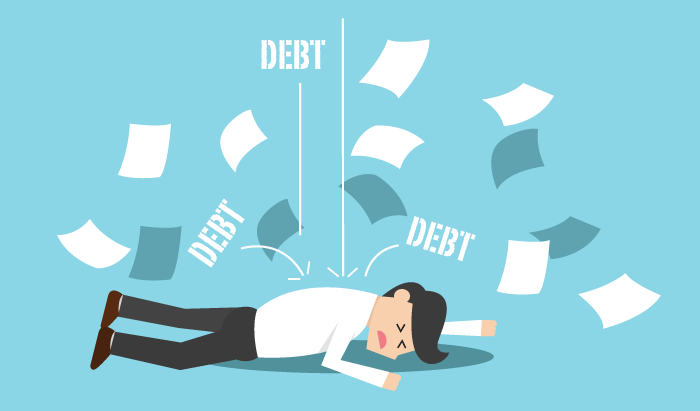Credit cards, zero per cent balance transfers, lines of credit, interest-free store loans…it really has never been easier to spend money that you haven’t yet earned. Throw in low interest rates and a solid economy with few real hiccups for the best part of two decades and you have ripe conditions to encourage a binge on debt of epic proportions. And that’s exactly what we have witnessed.
On average, people have three times as much debt in proportion to their income compared with 25 years ago. Debt is clearly no longer a dirty word in the minds of many. Additionally, saving a reasonable deposit for a first home is becoming more and more out of reach for young people, so many are taking the situation up a notch and turning to credit cards and personal loans to raise enough money for the deposit.
So what steps can you take to manage your debt burden?
Repayment plan: debt snowball versus debt avalanche: Where you have multiple personal debts such as credit cards, personal loans etc., it’s useful to have a plan of attack in terms of what you pay and when. Two methods used are the ‘debt snowball’ and ‘debt avalanche’.
The ‘debt snowball’ method involves paying your smallest debts first to create positive momentum. As you finish repaying each debt, you remove it from your list and this helps to simplify things and reduce stress.
The ‘debt avalanche’ method focuses on paying off the debt with the highest interest rate first. Debts with a higher interest rate grow faster due to the effect of compounding interest. So, paying these debts first should save you more money in the long run.
From a purely financial standpoint, the ‘debt avalanche’ method is less costly than the ‘debt snowball’ method in general. But for people that need the extra motivation and feeling of progress, the ‘debt snowball’ method may be a better option.
Be aware of the debt consolidation trap: Debt consolidation may sound like a viable option for repaying your debt because of a lower interest rate and regular repayment amount. However, often the reason the regular repayment amount is lower is because the term of the loan is extended.
Should you really have a line of credit?: A line of credit secured against your home may sound good in theory. It basically works like a gigantic credit card that only requires you to pay the interest at the end of each month. These facilities are popular these days as they allow you to access the equity in your home without needing to sell the property.
Finally, Debt is just a symptom of a bigger problem, which is spending more than you earn. Things such as consolidating the debt or fancy credit facilities won’t help your situation if you don’t address the root of the problem.




